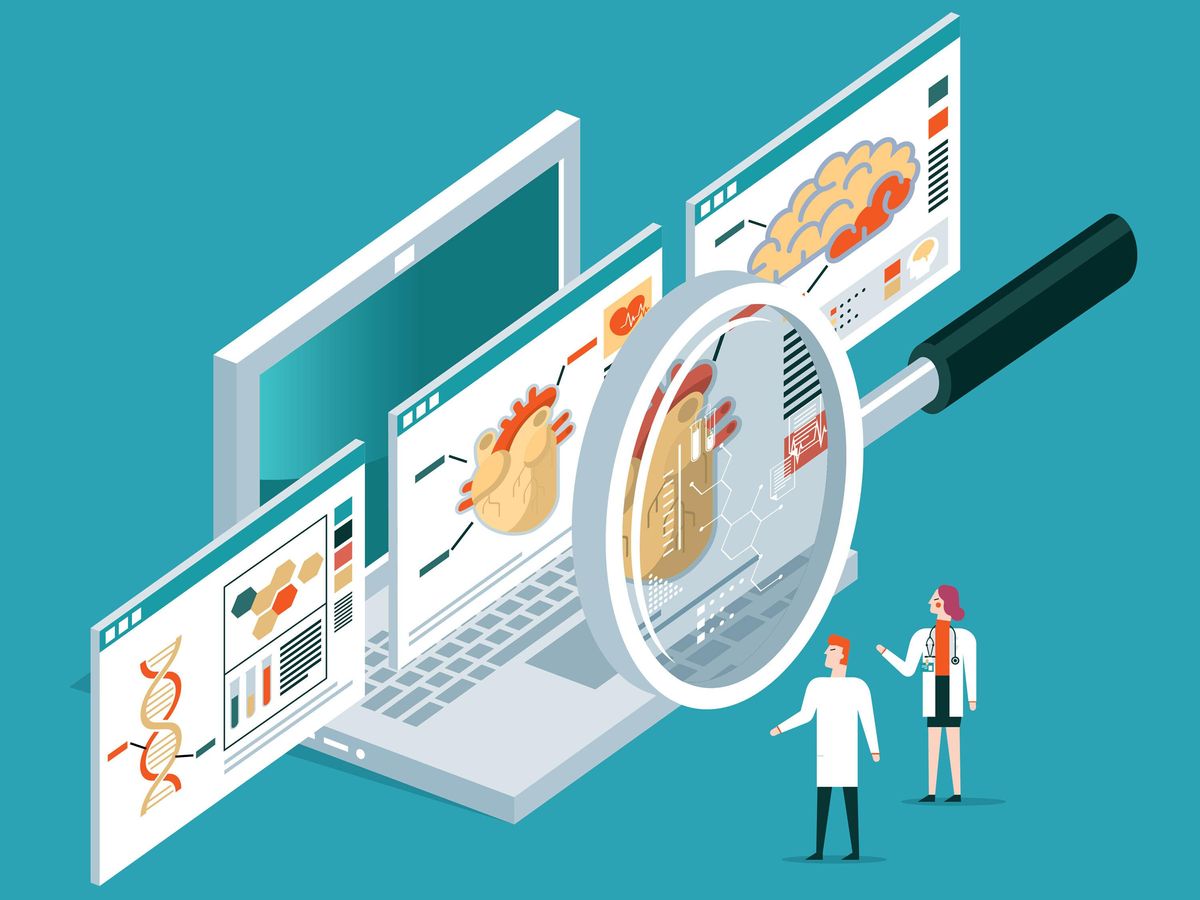Biomedical researchers have a tough task in managing the massive amounts of data they collect. Although programs do exist to help, including off-the-shelf spreadsheets and downloadable open-source solutions, they typically require an IT background, which many researchers lack.
Startup SciosHub, which launched in 2020, aims to solve the problem. The company’s flagship product is a software-as-a-service (SaaS) and informatics platform that automates and simplifies the back-end data-management process.
“Scientists should be focusing on their science, not how to make IT work for their research,” says Joanne Wong, SciosHub cofounder and CEO. The IEEE member started the company, headquartered in Buffalo, with fellow IEEE members Jean Gehring and Abraham Rojo.
SciosHub’s platform collects different data sources of life sciences research in one, central location. The product allows researchers to capture, curate, and compute their data on a secure and scalable cloud architecture.
PROVIDING THE SOLUTION
SciosHub came about when Wong was executive director at Cancer Computer, a charity providing free high-performance computing for oncology researchers worldwide.
Wong says she realized scientists “cobbled together data management systems” and were reliant on developers, postdoctoral researchers, and graduate students to maintain the systems. The data management tools were hosted on lab servers, which are costly to maintain and replace, she says, and were vulnerable to cyberattacks. Scientists “did the best they could to manage their data but lacked the tools to do so in a hassle-free and cost-effective way,” Wong says.
Wong and Rojo, who worked at Cancer Computer together, met Gehring at an IEEE Technology and Engineering Management Society event. They began to discuss the issues researchers were facing with managing their data, and decided to build their own platform.
Their system is composed of existing open-source solutions.
FINDING THE RIGHT TOOLS
To develop their product, SciosHub’s founders have been working with biomedical scientists who are conducting research in cardiology, neuroscience, and oncology.
The SciosHub team found that the researchers wanted one product that would work across multiple locations—which they could use to manage an assortment of data sets for long- and short-term studies.
The product SciosHub developed has five components: data capture, data quality, data sharing, data management, and visualization. It has three modules that were created for specific types of data: imaging, behavioral, and genomic sequencing.
The platform integrates data—both qualitative and quantitative—provided by the researchers, or data can be transferred from other databases and open-access platforms. The tool enables researchers to automate surveys to directly collect the data once a participant submits it. The system organizes the data and allows researchers to sort it by group, project, or subject. The data quality module determines if entries are complete, and it flags any outliers (unexpected values outside the nominal range).
Researchers also can create 3D image visualizations, graphs, charts, and statistical plots. Data sets and visualizations can be shared with other scientists to facilitate collaboration. Scientists can restrict access to certain data sets or functions for specific users.
SciosHub project managers work with researchers to help them choose the right modules for their projects. Scientists don’t have to worry about fixing bugs themselves or contacting IT; the startup’s project managers handle all the technical issues. The cost varies based on the number of users and the volume of data processed.
The platform is being piloted by researchers in Europe and North America.
The biggest challenge the group has faced, Wong says, was choosing which open-source components to integrate into the SaaS platform.
“With the help of biomedical researchers, we developed a complex vetting process to select the best open-source solutions,” she says. The team created several prototypes for the researchers to test.
The startup uses Amazon Web Services to host the platform. Wong says that as the company grows, she plans to use Freshworks, which provides customer-relationship management tools, and IEEE Dataport for access to open-access data sets.
The platform might be particularly useful for scientists at pharmaceutical companies, government research agencies, and organizations that conduct research on behalf of other businesses. It also can be used for large clinical or preclinical studies being conducted at multiple sites.
WHAT’S NEXT
SciosHub currently has eight employees including biomedical researchers, architects, and IT developers.
The startup is looking for pre-seed funding opportunities. It’s one of 13 companies that is a part of the Powered by IEEE program, which was developed by the IEEE Entrepreneurship initiative. The program includes discounts to the IEEE Xplore Digital Library and IEEE DataPort. Participants also receive a US $10,000 credit toward the purchase of software from Freshworks.
Wong is also a member of the IEEE Entrepreneurship committee and is its 2022 chair.
SciosHub is currently integrating analytical tools into its platform. Wong says she is considering developing a tool that could incorporate machine learning and other algorithms. The company is also looking for more pilot sites to help improve the current features it offers.
- Powered By IEEE Program Saves Startups Money - IEEE Spectrum ›
- AI Could Help Increase the IVF Success Rate - IEEE Spectrum ›
Joanna Goodrich is the associate editor of The Institute, covering the work and accomplishments of IEEE members and IEEE and technology-related events. She has a master's degree in health communications from Rutgers University, in New Brunswick, N.J.



